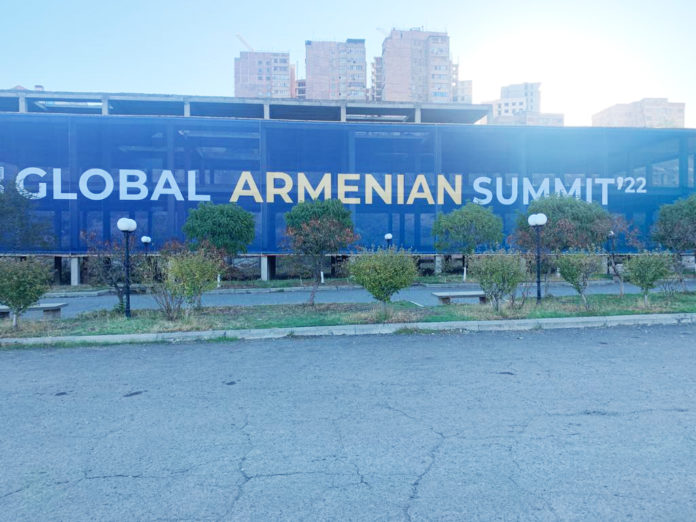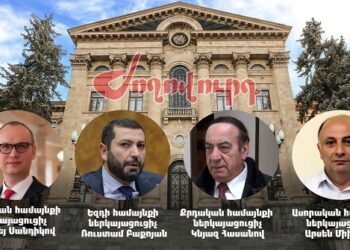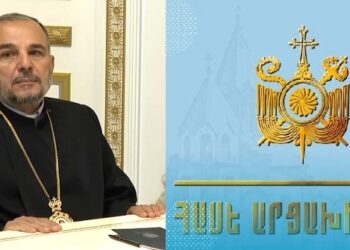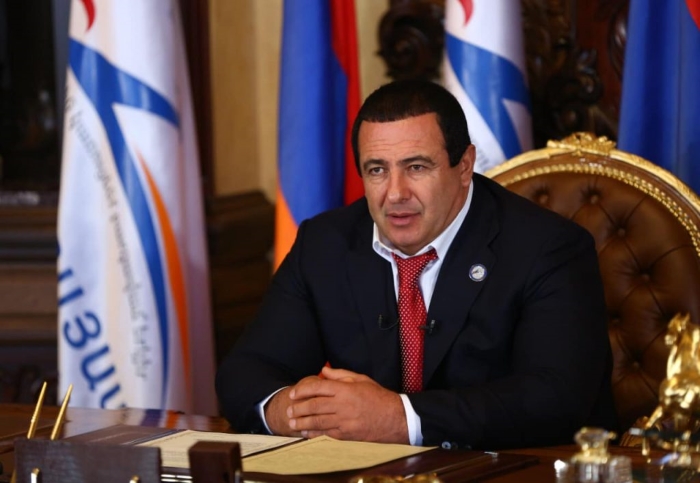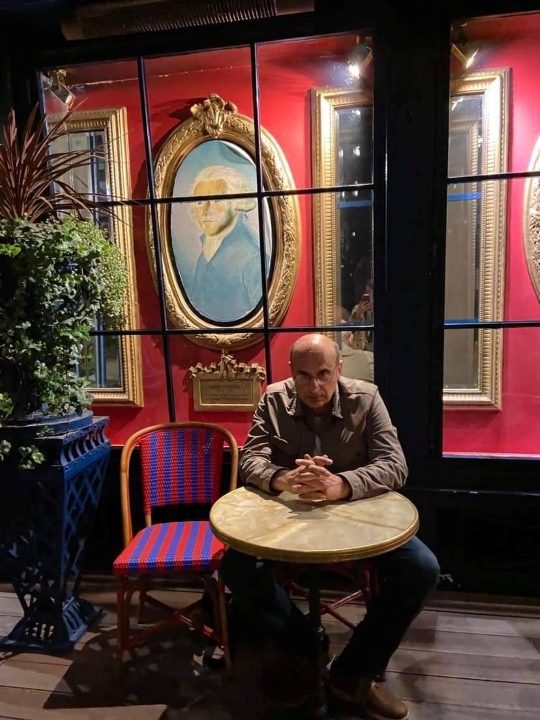By Arto Manoukian
Special to the Mirror-Spectator/Abaka
YEREVAN — The controversial Global Armenian Summit was held in Yerevan’s Meridian Convention Center from October 28 to 31. Due to past gatherings of the Armenian diaspora that were nearly all failures, this latest summit was subject to skepticism, followed by the refusal to participate from the two Armenian Catholicosates based in Echmiadzin and Antelias. Such a negative approach was promoted by the Armenian Revolutionary Federation and its affiliates.
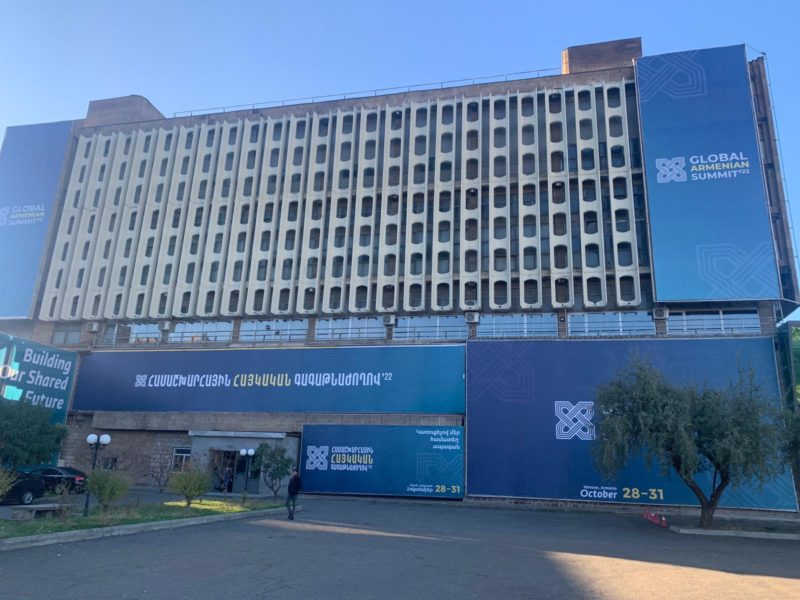
As per Zareh Sinanyan, High Commissioner for Diasporan Affairs of the Republic of Armenia, the protocol for invitation to this summit was different from those hosted in the past. Personal invitations were issued, thus avoiding invitations to diasporan organizations.
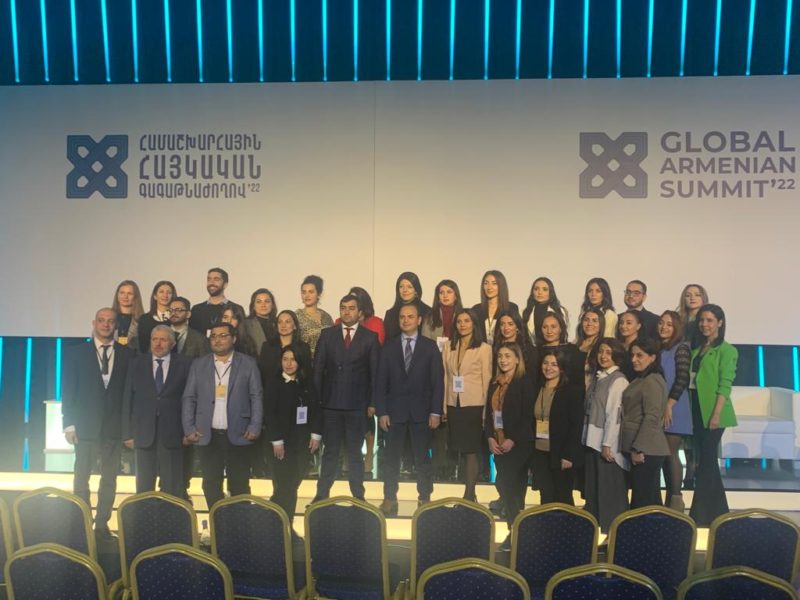
Boycott or not, by the time the summit concluded, it had more than 600 participants from over 50 countries and around 150 speakers from 15 different countries. During its four days, participants attended 11 public presentations and 15 roundtable sessions. All were led by capable moderators. Their interventions were reasonable and directed the panels of expert speakers to cover the designated topics.
The moderator of the first roundtable, Lara Setrakian, a diasporan Armenian expat and the acting president of Apri Armenia, coined a new word, Spurkastantsi, for a diasporan Armenian expat living in Armenia, in her opening remarks.
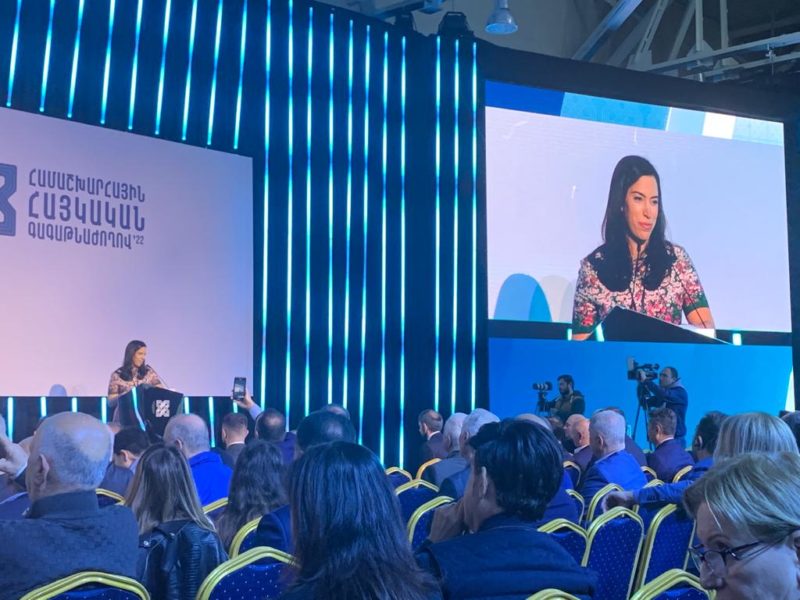
The 15 roundtable sessions were categorized by the following topics: diaspora and advocacy; diasporan support for strengthening the security of the Republic of Armenia; diasporan soft power and the global brand; Armenia as a lifeline supporting diaspora communities in distress; Armenia as a lifestyle choice; funding and institutionalizing repatriation; the diaspora in public health and social welfare; the diaspora in science and technology; the diaspora in the development of tourism; the diaspora in education and culture; the diaspora in energy, the environment and climate; the diaspora and sustainable agriculture; supporting diasporan youth and their connection to the homeland; diasporan schools and the teaching of Armenian language and culture; Armenian studies, education and resource models.
These panel discussions were staffed by experts in their respective fields. Most were diasporan Armenians who had made Armenia their home. Scholars, scientists, businessmen, educators, specialists in various fields, and politicians from Armenia and the diaspora all had gathered in order to discuss the future of Armenia-diaspora relations.
Boycott or not, the summit has now ended. Will it be evaluated as a success or a continuation of past failed trials? Let’s examine the situation impartially. Avoiding, boycotting or approaching the event negatively serves no one. The country is at a critical point so that any efforts to involve the diaspora should be encouraged. We shouldn’t be afraid of making mistakes again and again. Sitting idle and waiting for miracles is not the path to take.
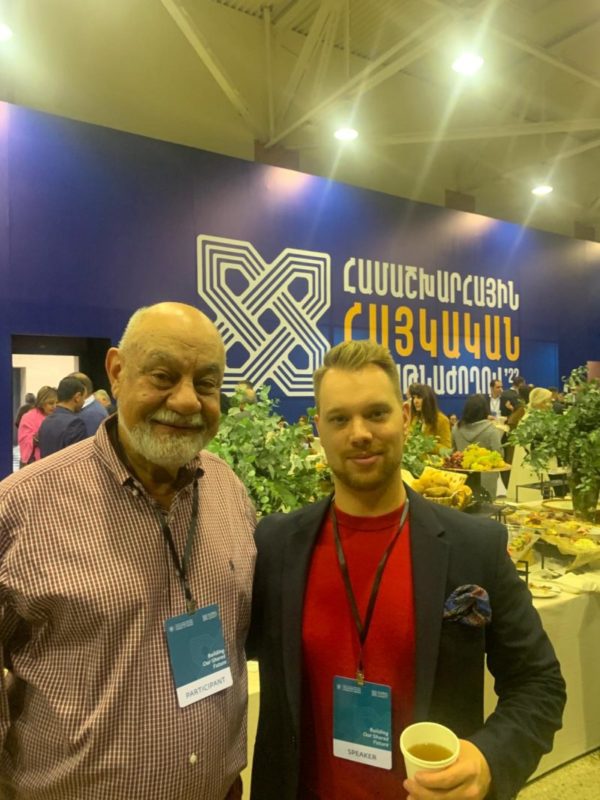
The summit was very well organized and deserves commendation. Among the positive aspects are the choice of venue and well adapted facilities; the good management and coordination; and the presence of top ministerial invitees, well versed and esteemed moderators and expert panelists. The catering services were superb, the closing ceremony fantastic and the cultural performance great.
One flaw that this participant has observed is the absence of a forum where new ideas for Armenia-diaspora ties could be brought up and analyzed. Such ideas could spur new forms of collaboration.
In conclusion, we have seen many positive developments from the government. I have concluded that the government is trying to incorporate diasporans in its decision-making and in its process of legislating Armenia-diaspora cooperation. Many expatriates have been hired and work now in many ministries to make changes from the inside.
Having seen such positive moves, I left the summit with the impression that the Republic of Armenia is seriously taking positive action to strengthen Armenia-diaspora relations. Soon there will be many new laws which will turn the slogan “global Armenian nation” into a reality. Hopefully this positive impression will soon be justified through concrete positive results.



